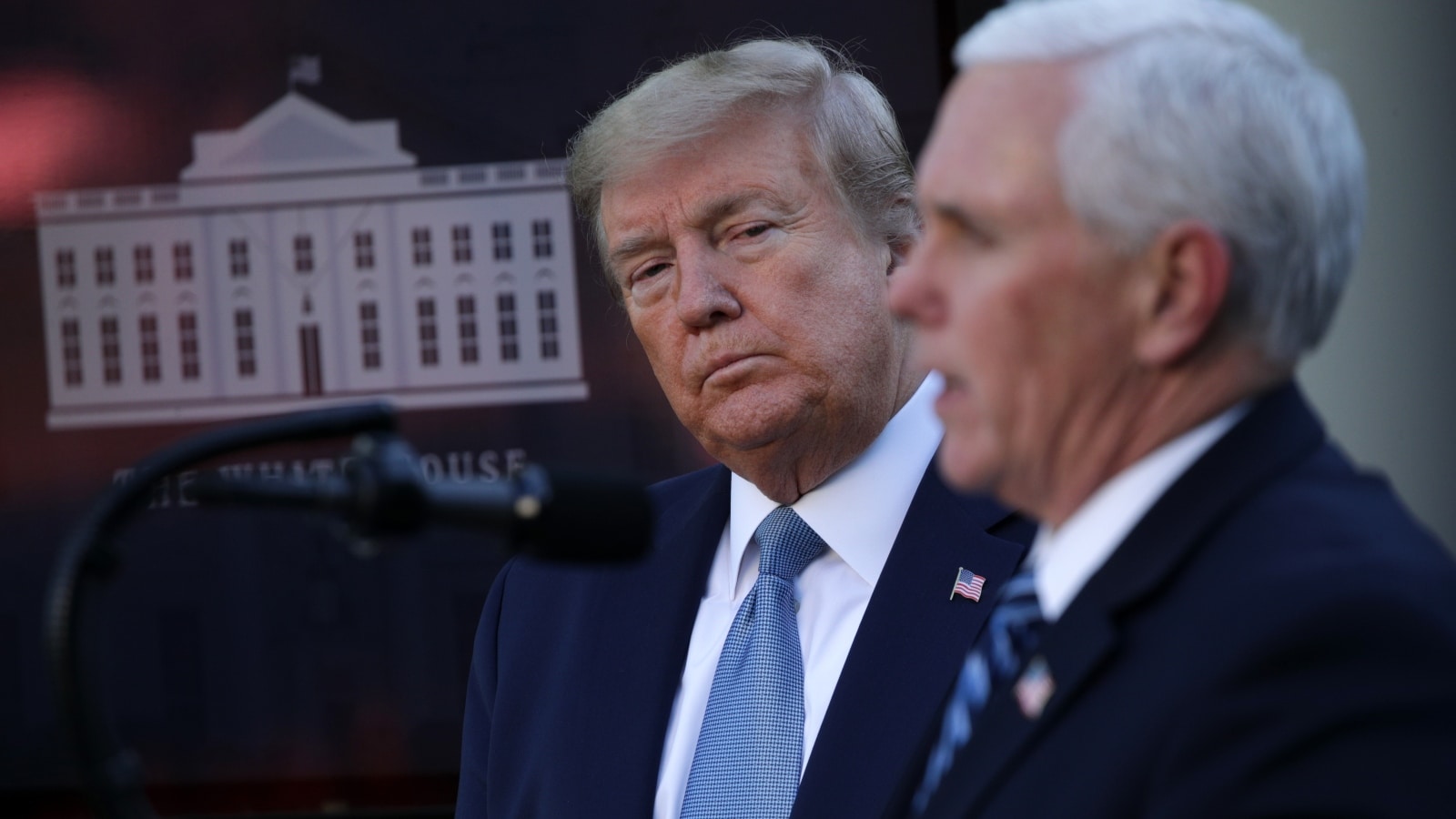OPINION: This article may contain commentary which reflects the author's opinion.
Former Vice President Mike Pence turned heads on Friday when he spoke up about whether he’d support his 2016 running mate and former President Donald Trump during an interview with Fox News.
After briefing running for the 2024 GOP presidential nominee, Pence said he would be withholding support for Trump this time around, claiming — remarkably — that the former commander-in-chief’s policies are not conservative enough.
Pence, whose rapport with Trump deteriorated following the January 6 riots, during which the president criticized him for not returning disputed electoral slates to state legislatures in his capacity as president of the Senate, said that his announcement should not be surprising.
“It should come as no surprise that I will not be endorsing Donald Trump this year,” Pence said on “The Story.”
“I’m incredibly proud of the record of our administration. It was a conservative record that made America more prosperous, more secure and saw conservatives appointed to our courts in a more peaceful world,” Pence, a former Indiana governor and congressman, continued.
Pence reflected on his presidential bid, emphasizing the distinctions between himself and his former boss. He reiterated his argument that, contrary to claims by Trump and some supporters, he lacked the authority under the Electoral Count Act of 1887 to return disputed elector slates to state legislators.
“[We have] our differences on my constitutional duties that I exercised on January 6 [2021],” he said.
Pence also said that Trump was shirking his conservative bona fides this time around, such as being committed to lowering the debt and the “sanctity of human life.”
He further remarked that Trump’s recent statements regarding China and his stance against banning TikTok in the U.S. represent a significant shift from his previous strong opposition to the Chinese-controlled social media platform during his presidency.
“Last week [was] his reversal on getting tough on China and supporting our administration’s effort to force a sale of ByteDance [and] TikTok,” he said.
On Monday, Trump stated that the Gallagher-Krishnamoorthi TikTok bill, which some have labeled as a “ban,” would merely bolster Facebook’s parent company, Meta. Trump, who has his own social media platform in Truth Social, has clashed with Meta, alleging that it censors conservative and anti-establishment viewpoints.
“I consider Facebook to be an enemy of the people,” Trump told CNBC.
When questioned on “The Story” about Trump’s apparent shift on TikTok, Pence declined to speculate on the matter directly. He reiterated his observation that Trump’s current platform seems to contradict the conservative agenda that both he and Pence governed on for four years.
Pence said that despite his withholding of support for his former running mate, GOP voters have made it clear they prefer Trump.
“What I’m going to spend the rest of this year on is talking about what we should be for. And that is the broad mainstream conservative agenda that’s defined our party and always made America strong and prosperous and free,” he said.
Pence also pushed back on host Martha MacCallum’s mention of Pence considering a third-party bid. “I’m a Republican, Martha,” Pence said, adding that he would not be voting for President Biden under any circumstances.
WATCH:
House Republican Conference Chairwoman Elise Stefanik of New York appears to be making a strong case to become Trump’s 2024 running mate, judging by her response during a CNN interview regarding Pence last month.
Stefanik strongly suggested she would not have certified the 2020 election results as president of the Senate if she were Trump’s vice president at the time.
“I would not have done what Mike Pence did. I don’t think that was the right approach,” Stefanik told CNN’s Kaitlan Collins. “I specifically stand by what I said on the House floor.”
She refused to vote to certify the 2020 election results, arguing that there was “unconstitutional overreach” in states like Pennsylvania, where election laws were altered by state officials and courts, not the legislature, as called for in the U.S. Constitution, prior to the November elections. Officials at the time cited the COVID pandemic as their basis for allowing widespread mail-in balloting, which many Republicans said were unconstitutional changes. Federal courts, however, refused to intervene.
“I think it’s very important that we continue to stand up for the Constitution and have legal and secure elections, which we did not have in 2020,” Stefanik said.
